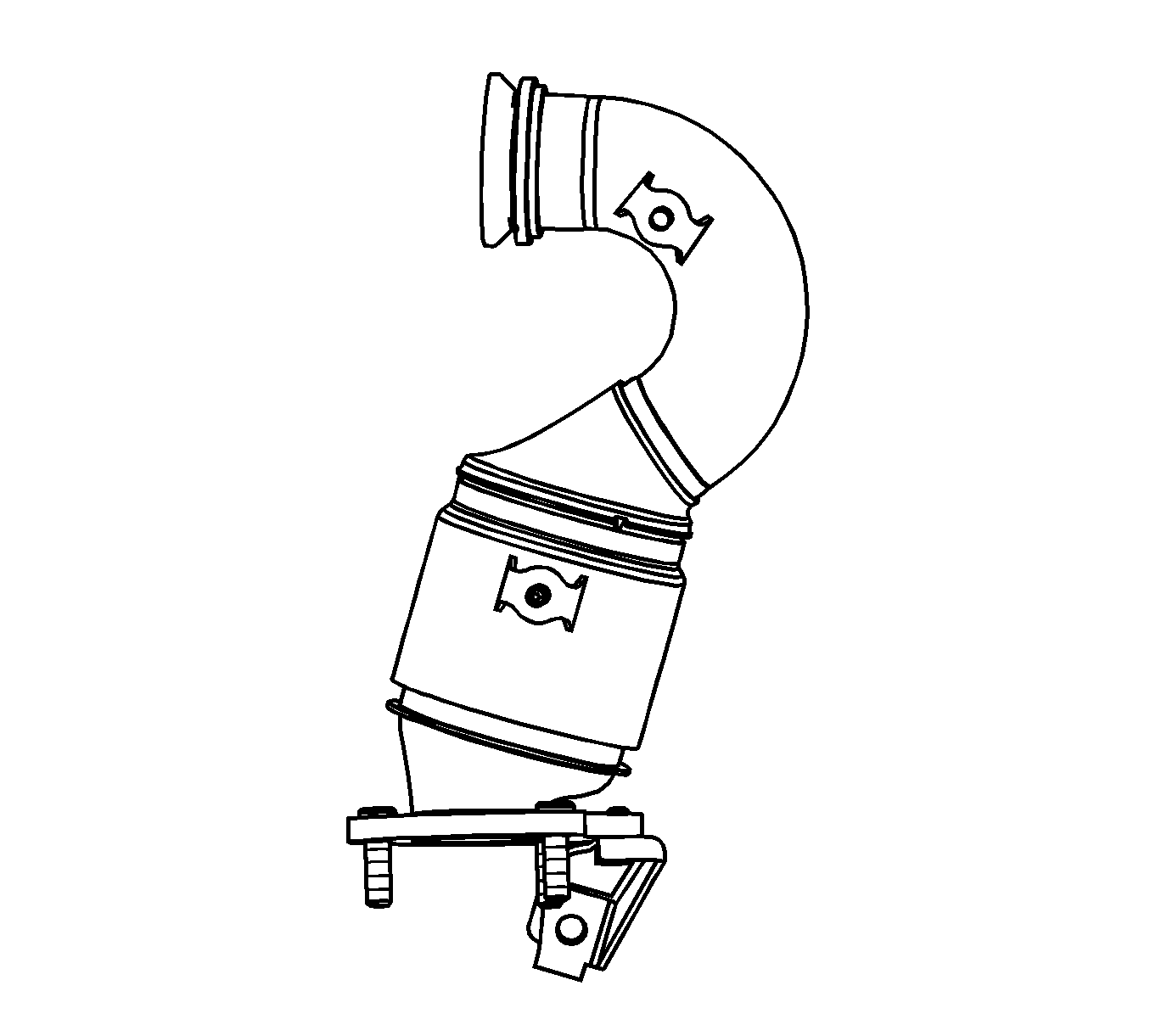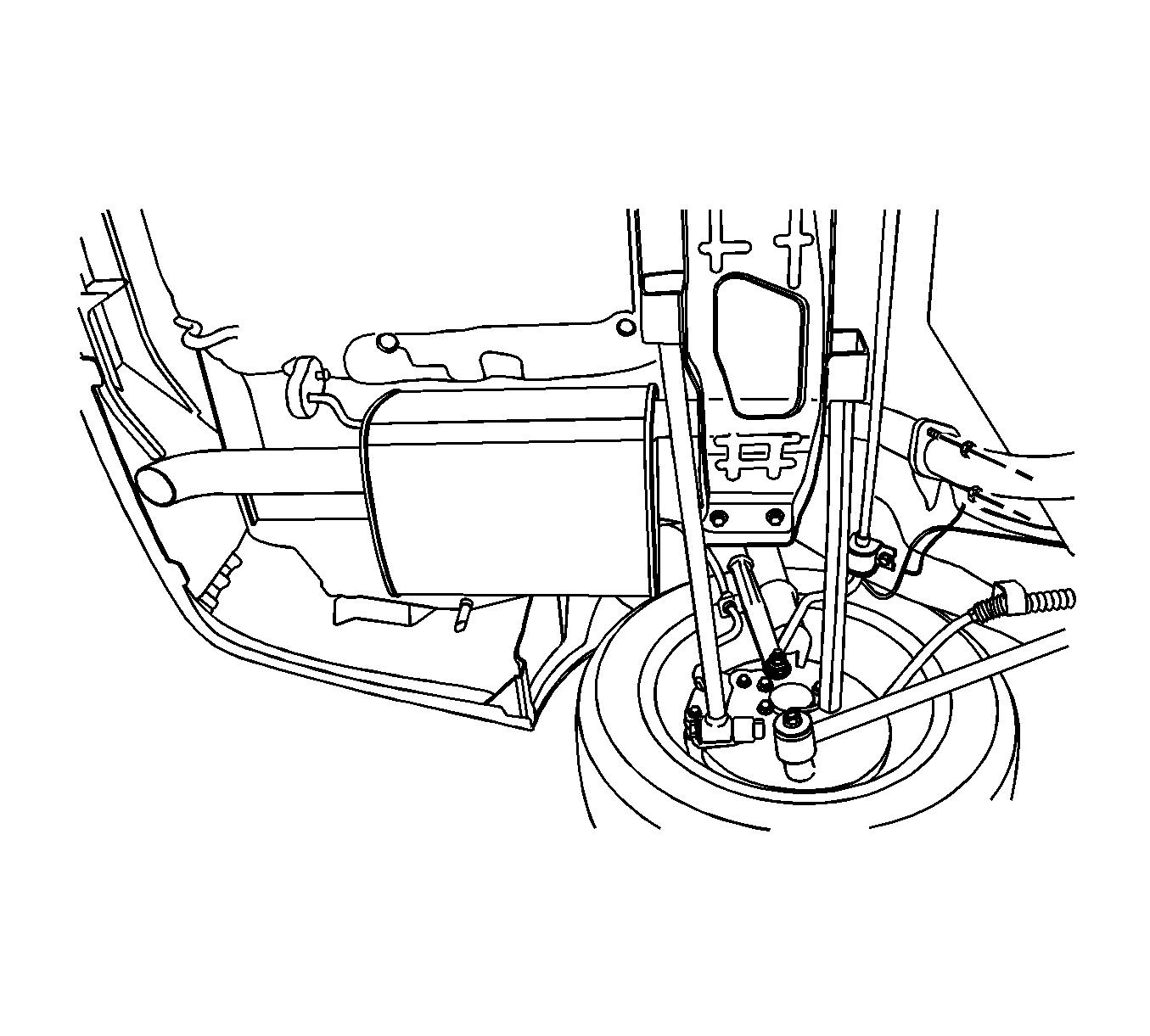Exhaust System Description Gas Engines
Caution: Engine exhaust contains Carbon Monoxide (CO) which cannot be seen or smelled. Exposure to CO can cause unconsciousness and even death.
Exhaust may enter the vehicle if:| • | The vehicle idles in areas with poor ventilation (parking garages, tunnels, deep snow that may block underbody airflow or tail pipes). |
| • | The exhaust smells or sounds strange or different. |
| • | The exhaust system leaks due to corrosion or damage. |
| • | The vehicle’s exhaust system has been modified, damaged or improperly repaired. |
| • | There are holes or openings in the vehicle body from damage or after-market modifications that are not completely sealed. |
| • | Drive it only with the windows completely down. |
| • | Have the vehicle repaired immediately. |
Notice: When inspecting or replacing exhaust system components, make sure there is adequate clearance from all points on the underbody to prevent overheating of the floor pan and possible damage to the passenger compartment insulation and trim materials.
Muffler
If holes, open seams or any deterioration is discovered upon inspection of the front muffler and pipe assembly, the complete assembly should be replaced. The same procedure is applicable to the rear muffler assembly.
Heat shields in the front and the rear muffler assembly positions, as well as for the catalytic converter and the connecting pipe, protect the vehicle and the environment from high temperatures the exhaust system develops.
Catalytic Converters
Notice: In order to avoid damage to the catalyst, use unleaded fuel only.
The catalytic converters are emission control devices added to the exhaust system to reduce pollutants from the exhaust pipes.
The 3-way catalyst has coatings which contain palladium, platinum and rhodium, which simultaneously lower the levels of HC, CO and NOx.
Exhaust System Description Diesel Engine
Pre-Catalyst

The catalyst converters are emission control devices added to the exhaust system to reduce pollutions from the exhaust pipes.
It has a coating only platinum, which simultaneously lower the level of HC and CO. But NOx is able to be reduced from the engine control system (example: cooled EGR system, etc).
Rear Muffler

The rear muffler is to reduce broad band engine exhaust noise. It is comprised of a series of perforated tubes and baffles to break up the sound waves and reflect them. The adopted dual muffler for this vehicle improves the efficiency to reduce flow noise.
It is made of stainless steel to protect the front muffler from corrosion.
It is mounted behind the rear wheel.
